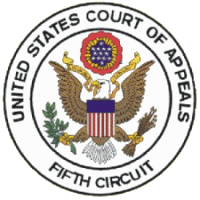Whistleblower Law Blog
Fifth Circuit Rules for Plaintiff in False Claims Act Retaliation Suit Previously Dismissed on Statute of Limitations Grounds

On January 5, 2012, the U.S. Court of Appeals for the Fifth Circuit held that a two-year statute of limitations was the appropriate period for assessing the timeliness of an action brought by a private employee alleging retaliation by a former employer in violation of the False Claims Act (FCA).
The plaintiff, Michael Riddle, allegefs that after he complained to his supervisors at Dyncorp International, Inc. that the company had not fulfilled its obligations to finish a contracting project with the U.S. government, he was “marginalized” and “eventually terminated” on September 21, 2009. Riddle then filed suit against Dyncorp on March 18, 2010 in the U.S. District Court for the Northern District of Texas, alleging that his employer had violated the FCA when he purportedly sought to prevent the company from making a fraudulent claim for payment to the government.
When Riddle filed suit, the FCA contained no relevant limitations period. In the absence of an express statute of limitations, courts have generally used analogous state statutes of limitations to determine the timeliness of a FCA action. The district court dismissed Riddle’s suit, holding that the most analogous statute to the FCA is the Texas Whistleblower Act (TWA) which has a 90-day statute of limitations.
The Fifth Circuit reversed the lower court’s dismissal, disagreeing with the district court and finding that the analogy between the FCA and the TWA was “lacking”. The appeals court noted that the TWA only provides a cause of action to public employees and Mr. Riddle alleged retaliation by a private employer. In addition to restricting its retaliation protection only to public employees, the court noted that the TWA was also not analogous to the FCA because the TWA requires public employees first “to pursue an administrative remedy before suing”. This results in TWA limitations periods often exceeding 90 days because the running of the limitations period is suspended while the required administrative proceedings are pending.
In its decision, the Fifth Circuit held that the most analogous Texas state statute for determining the FCA statute of limitations is the two-year period applied to personal injury cases. The court favored this analogy “because of its association with…a cause of action for wrongful discharge where a person is terminated for refusing to commit an illegal act”. In reversing the district court’s ruling, the court remanded the case for further proceedings.
The appeals court also declined to apply the new three-year statute of limitations for FCA retaliation cases created by the Dodd–Frank Wall Street Reform and Consumer Protection Act because newly-created statute of limitations under Dodd-Frank was not yet in effect when the plaintiff filed his complaint.
The Employment Law Group® law firm has an extensive nationwide whistleblower practice representing employees who have been victims of retaliation.
Tagged: Dodd-Frank Act, False Claims Act (FCA), Whistleblower Laws (Federal)



